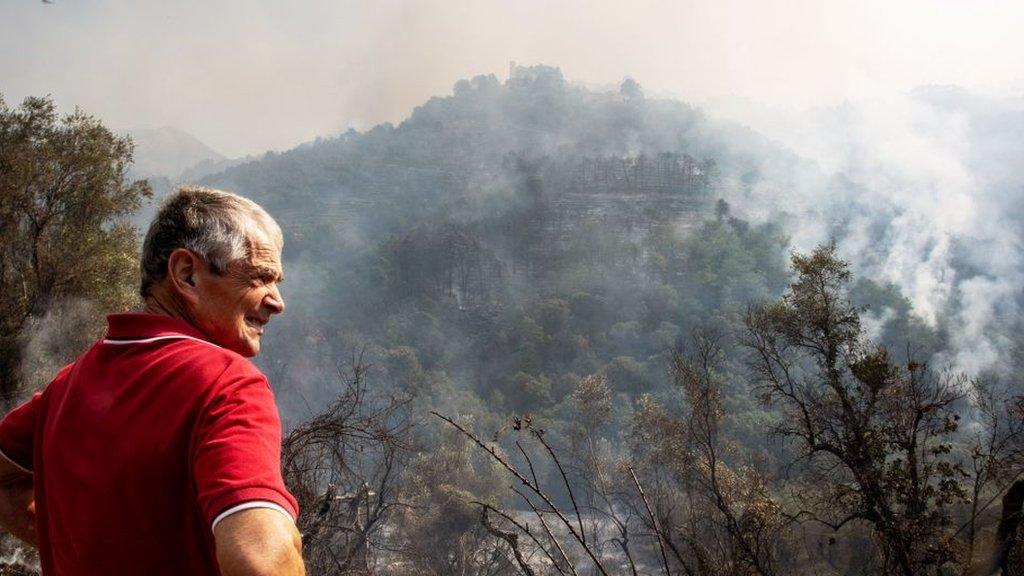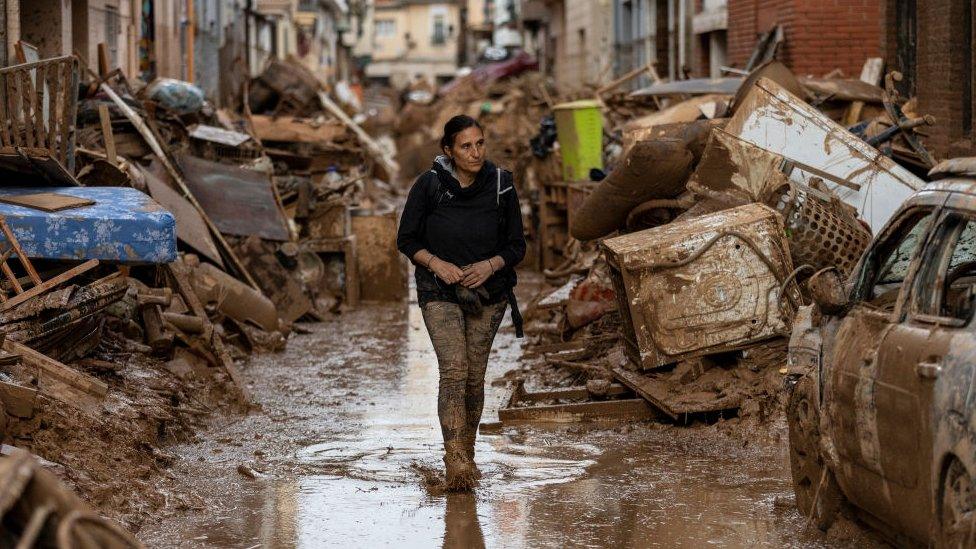UK weather: 'Real possibility' of drought being declared
- Published
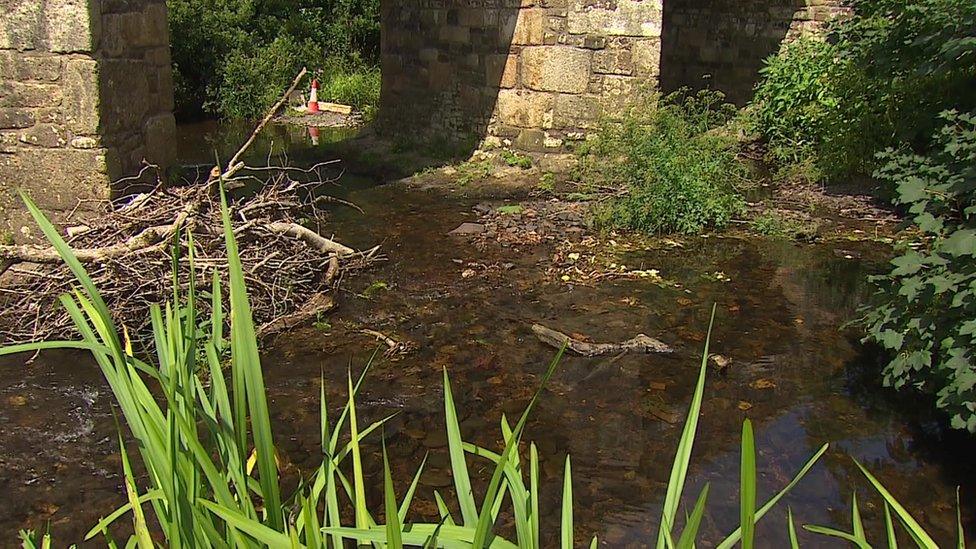
The River Taw in Devon has been declared as exceptionally low
Some of the rivers in the south-west of England are now at critical low points, with flow rates below the drought years of the past.
The River Taw in Devon has been declared as exceptionally low by the Centre for Ecology and Hydrology.
It has one of the lowest levels of any river in the country compared with its 1991 to 2020 long-term average.
On Tuesday, the Met Office said January to June this year was the driest period in England since 1976.
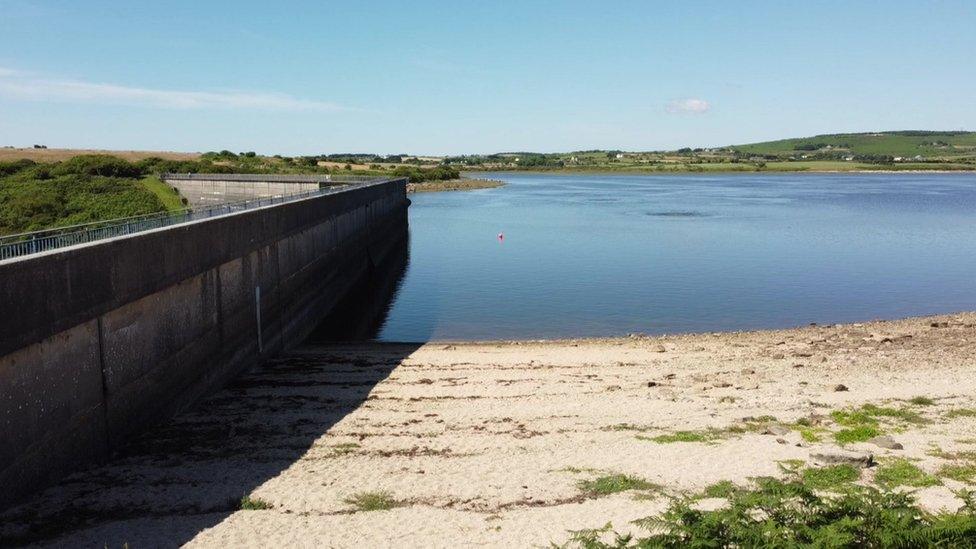
Stithians Reservoir in Cornwall shows how the long hot summer has affected water levels
The Taw flow rate in the last week is lower than that in the last five historical dry spells, including 1984, 1990, 1997 and 2011, as well as the drought of 1976, which is often held up as a yardstick.
On Tuesday, the National Drought Group met to discuss a strategy to deal with exceptionally dry conditions across the whole of England.
This meeting was planned to take place in October but the potential drought conditions forced an earlier meeting.
The lack of rain and water in our rivers has serious consequences, extraction could be limited to try and keep wildlife alive, irrigation schemes may have to use an alternative source of water, and of course reservoirs could run dry.
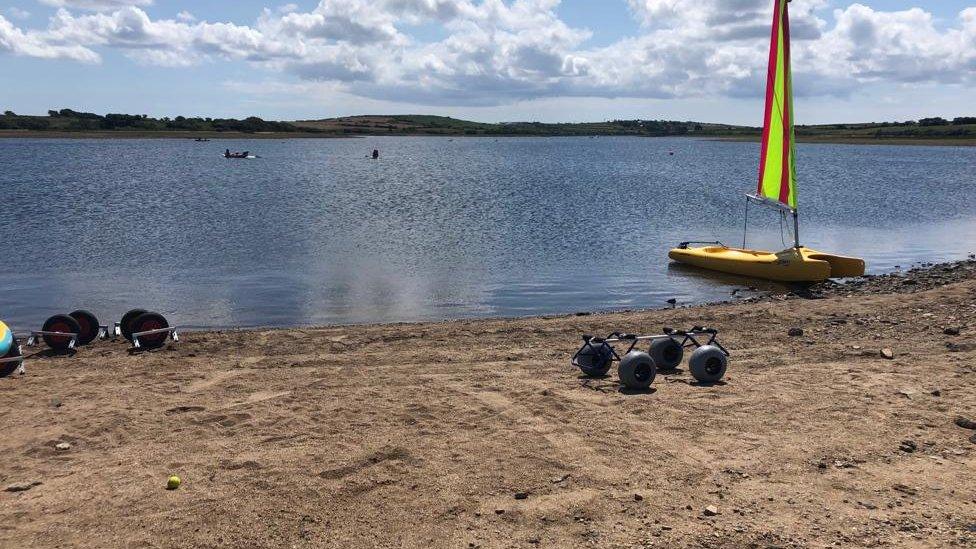
The South West has received just 16% of its summer rainfall so far
This brings the real possibility of a declaration of a drought and the enforcement of hosepipe bans, which can be introduced by the water providers using the Water Management Act of 2010.
Some of our native trees have already started to lose leaves and as the dry weather impacts on the South West some trees now look like they are starting their autumn early, with leaves turning orange and yellow two months early.
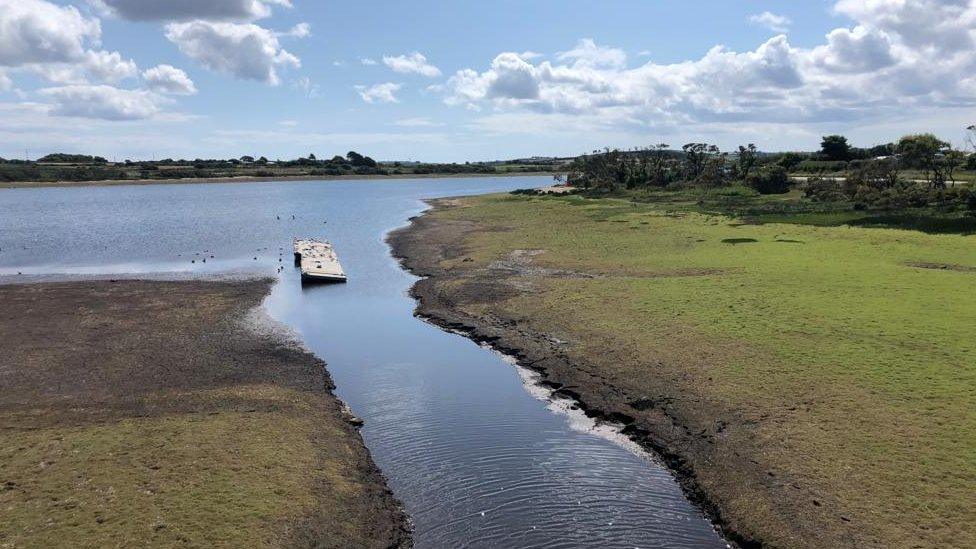
Reservoirs and groundwater supplies looked healthy in January compared with conditions now
The South West has received just 16% of its summer rainfall so far, and in July some locations in Somerset and Dorset received less than 1mm of rain.
Farmers are clearly worried about the impact on yield, some wheat crops are ready for harvest a good six weeks early, but the yield is down as a result.
Root crops need some summer rain and without it the likes of homegrown South West potatoes could be limited in supply.
The recent heatwave has shown that it is not just south-east England that could be affected, in the South West our abundance of rain especially in the winter is taken for granted - reservoirs and groundwater supplies looked really healthy in January.
But if climate change means our summers are more than likely to be hot and dry, then how we store water, how much we store and how we use it are questions that need answering now.

Follow BBC News South West on Twitter, external, Facebook, external and Instagram, external. Send your story ideas to spotlight@bbc.co.uk.
Related topics
- Published26 July 2022
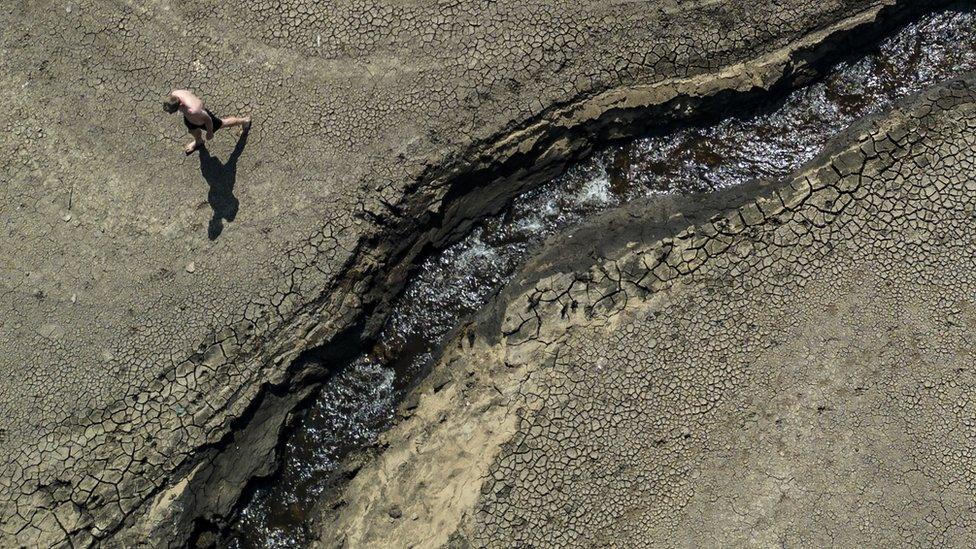
- Published19 July 2022
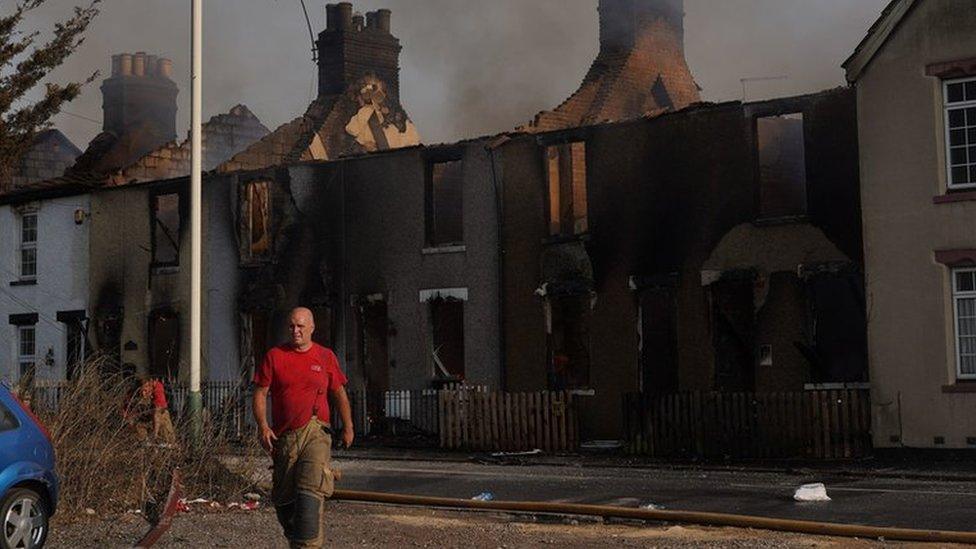
- Published21 July 2022
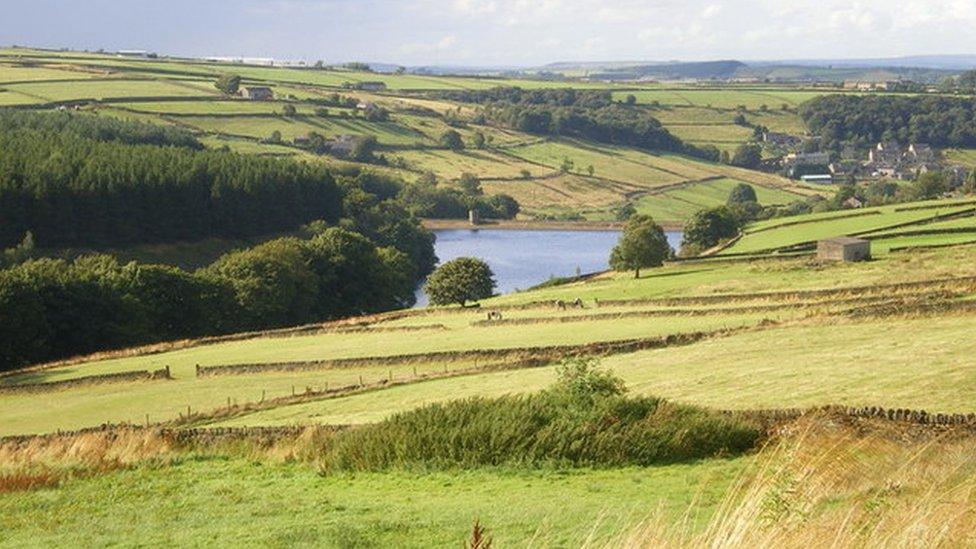
- Published15 July 2022
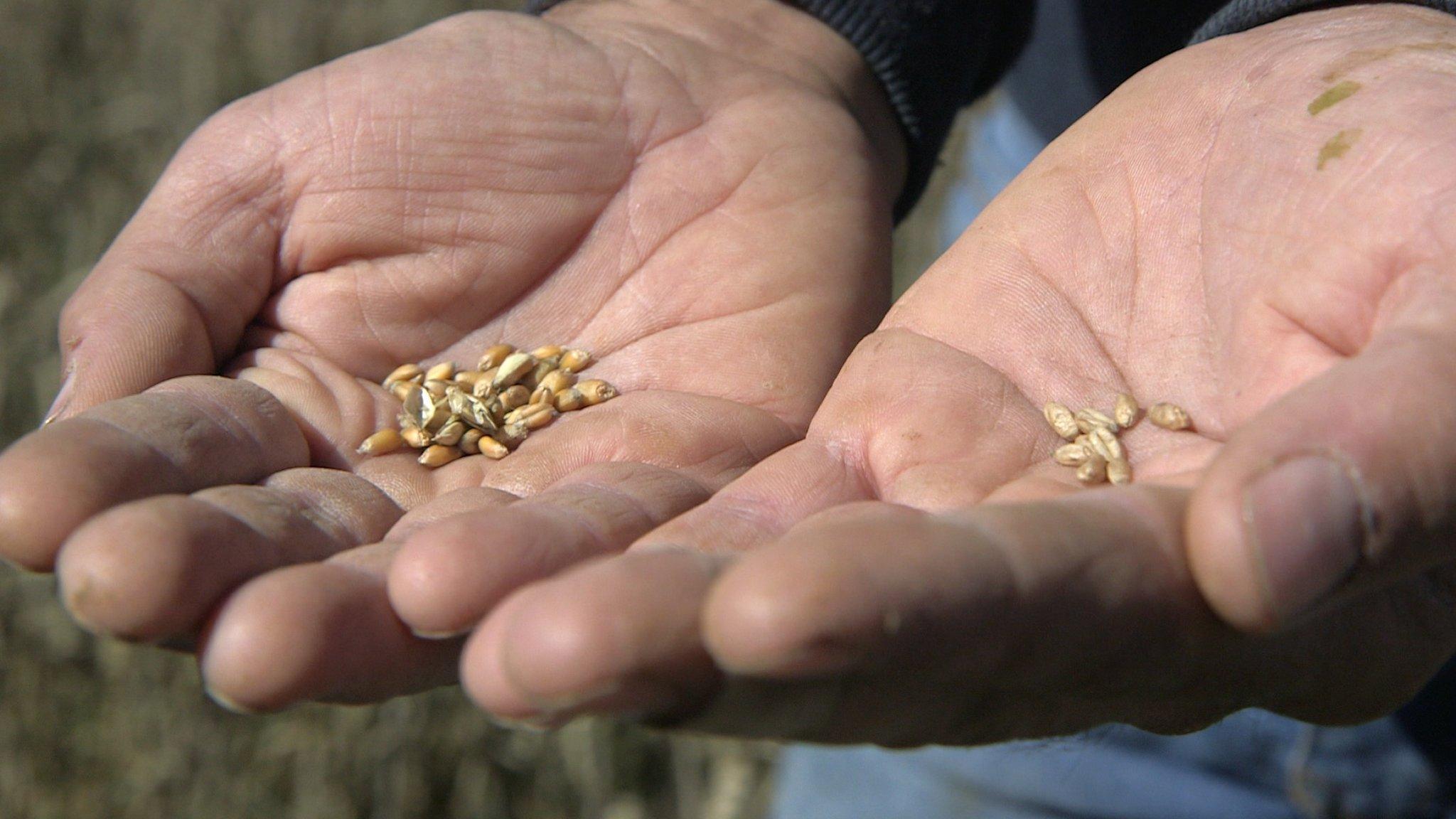
- Published21 July 2022
